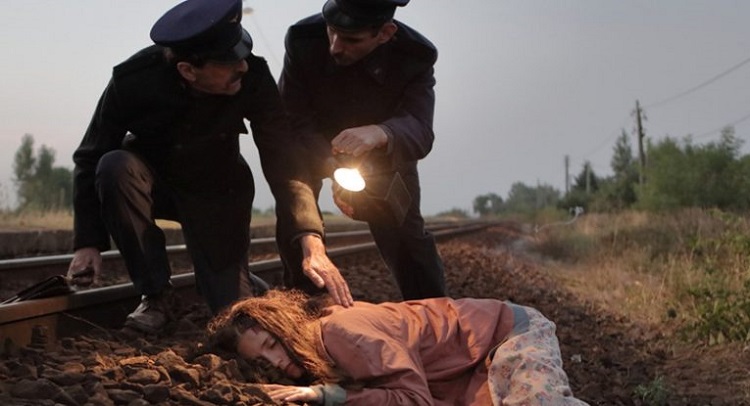At selected cinemas Fri 17 Nov 2017
Hungarian director Árpád Sopsits creates a dark and gritty thriller for his third film, turning to the true story of the Martfű Murders, where six young women were brutally killed in 1960’s Hungary.
Set during a politically sensitive period of the Cold War when relations between Budapest and Moscow were scarred by the defeat of the 1956 Hungarian uprising, a sexually driven killer targets female factory workers while innocent man Reti (Gábor Jászberényi) languishes in prison with only his sister Rita (Zsófia Szamosi) crying his innocence. The murder-mystery is made more complicated by a layer of political intrigue led by up and coming young prosecutor Szirmai (Peter Barnai) with older disgruntled chain-smoking detective Bota (Zsolt Anger) when they realise the bureaucratic blunder made seven years earlier. The crimes they’re dealing with are linked back to the attack and murder that sent Reti to a live out his life in prison.
The film is beautifully shot, showing the wide-open spaces of rural Hungary and the village community of Martfű. However, with so much going on – Reti in jail and his sister appealing for him, the killings in Martfű, the prosecution cover-up – the characters can feel flat and underdeveloped. With the detective, prosecutor, senior prosecutor and other political figures embroiled in the sentencing of an innocent man, no one comes across as particularly likeable. It is all personal ambition and protecting the strength of the legal system. As one character declares, “You can’t undermine the public’s faith in the legal system.”
With the murders, these scenes are given more screen time than you expect and it feels jarring and disrespectful, staying too long on the killer’s face before, during and after the murder. It’s that bit more forceful than in the more traditional explanation-confession scene, where the killer shares their reasons for committing their crimes in the interrogation room. Sopsits holds sharp close-ups making it quite clear that the killer has a long list of incredibly upsetting tendencies, that may in fact shock those closer to the certificate 15 age restriction.
What is intriguing is the use of time and place. Events play out in a small community back during a possibly simpler time, but the political maneuvering is domineering and weighty. The subject matter of crime and punishment, spinning around an unshakeable legal system is foregrounded. Someone has to pay, and you wonder if anyone can come out of this unscathed. The pastoral beauty is there throughout, but this is in the background, something to see, to pass by rather than to be enjoyed or savoured.
